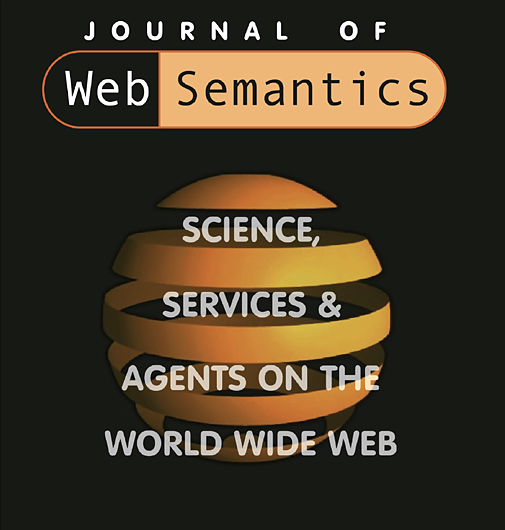 We are very pleased to announce that our group got a paper accepted at the Journal of Web Semantics on Managing the Evolution and Preservation of the Data Web (MEPDaW) issue.
We are very pleased to announce that our group got a paper accepted at the Journal of Web Semantics on Managing the Evolution and Preservation of the Data Web (MEPDaW) issue.
The Journal of Web Semantics is an interdisciplinary journal based on research and applications of various subject areas that contribute to the development of a knowledge-intensive and intelligent service Web. These areas include knowledge technologies, ontology, agents, databases and the semantic grid, obviously, disciplines like information retrieval, language technology, human-computer interaction, and knowledge discovery are of major relevance as well. All aspects of Semantic Web development are covered. The publication of large-scale experiments and their analysis is also encouraged to clearly illustrate scenarios and methods that introduce semantics into existing Web interfaces, contents, and services. The journal emphasizes the publication of papers that combine theories, methods, and experiments from different subject areas in order to deliver innovative semantic methods and applications.
Here is the pre-print of the accepted paper with its abstract:
- “TISCO: Temporal Scoping of Facts” by Anisa Rula, Matteo Palmonari, Simone Rubinacci, Axel-Cyrille Ngonga Ngomo, Jens Lehmann, Andrea Maurino and Diego Esteves
Abstract: Some facts in the Web of Data are only valid within a certain time interval. However, most of the knowledge bases available on the Web of Data do not provide temporal information explicitly. Hence, the relationship between facts and time intervals is often lost. A few solutions are proposed in this field. Most of them are concentrated more in extracting facts with time intervals rather than trying to map facts with time intervals. This paper studies the problem of determining the temporal scopes of facts, that is, deciding the time intervals in which the fact is valid. We propose a generic approach which addresses this problem by curating temporal information of facts in the knowledge bases. Our proposed framework, Temporal Information Scoping (TISCO) exploits evidence collected from the Web of Data and the Web. The evidence is combined within a three-step approach which comprises matching, selection and merging. This is the first work employing matching methods that consider both a single fact or a group of facts at a time. We evaluate our approach against a corpus of facts as input and different parameter settings for the underlying algorithms. Our results suggest that we can detect temporal information for facts from DBpedia with an f-measure of up to 80%.
Acknowledgment
This research has been supported in part by the research grant number 17A209 from the University of Milano-Bicocca and by a scholarship from the University of Bonn

